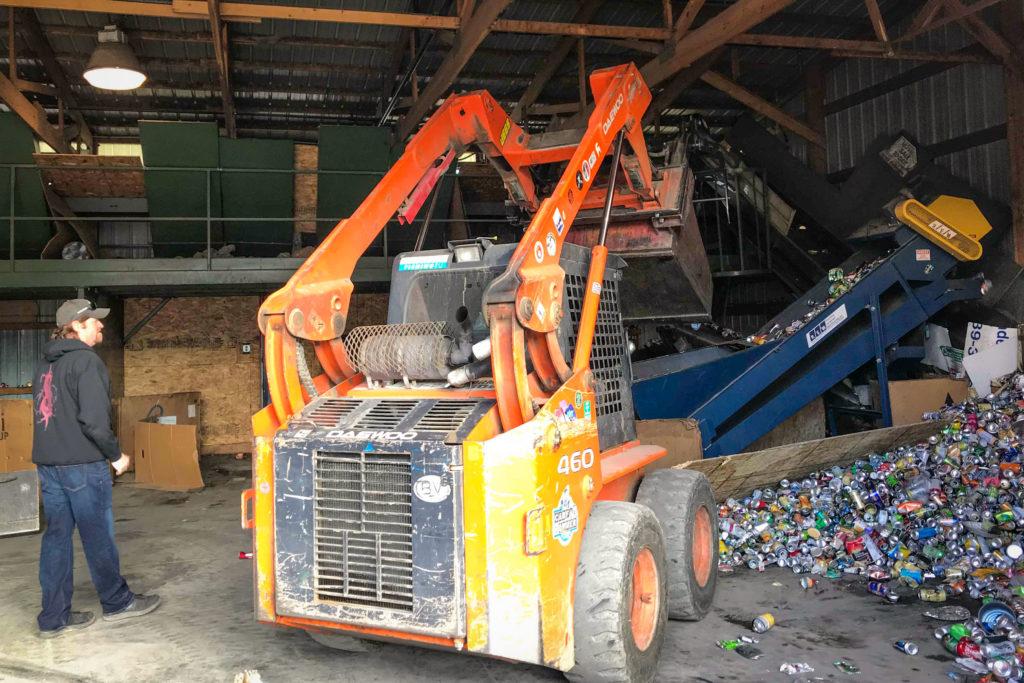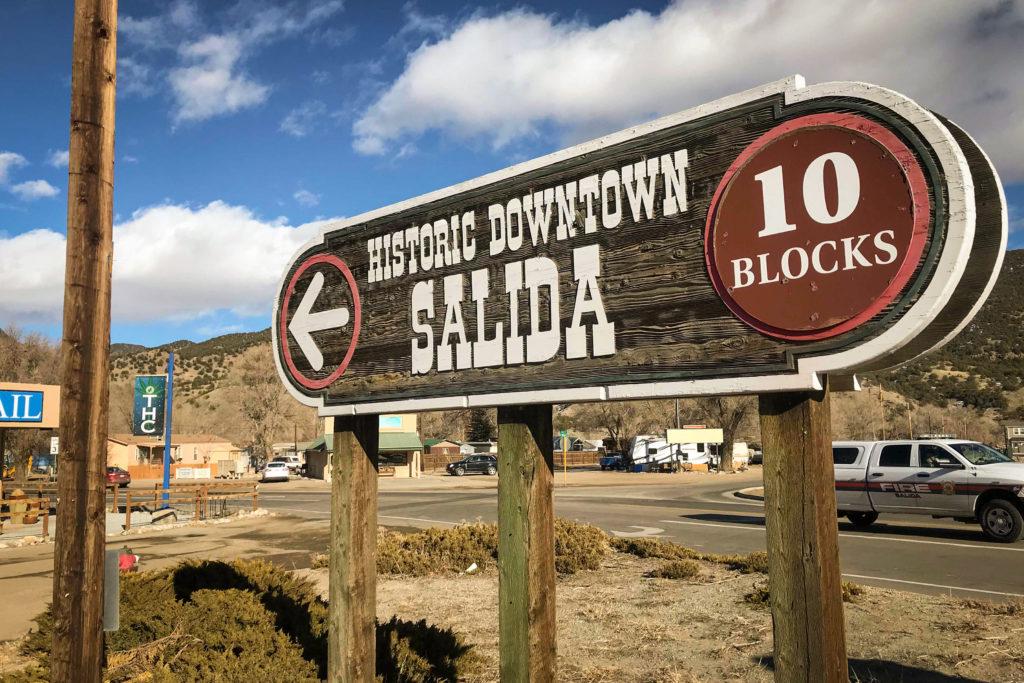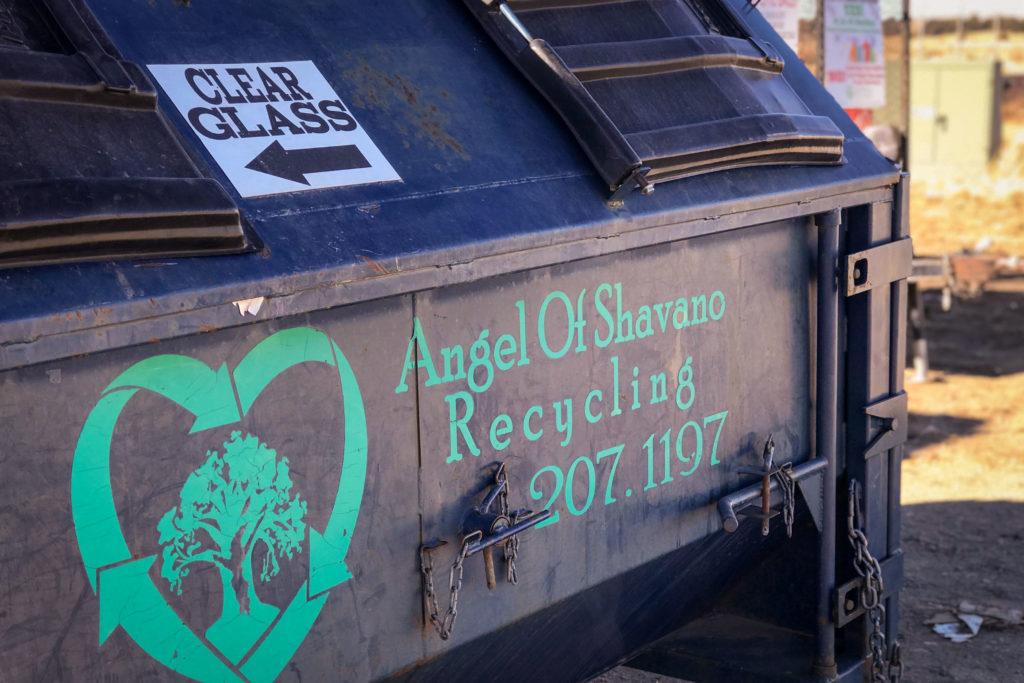
Recycling businesses have taken a hit after Colorado’s biggest user of glass dropped the price it will pay for some materials.
MillerCoors, which co-owns Rocky Mountain Bottle Company, said in a statement that the price drop brings them in-line with industry standards.
It’s made it almost impossible for some recyclers to operate.
At Angel of Shavano Recycling in Poncha Springs, just outside of Salida, all the material they collect has an end-user — newspaper and phone books go to Penrose, where it’s turned into insulation. Mail goes to Oklahoma to become toilet paper, and the glass goes to Rocky Mountain Bottle.
The company is one of the largest bottle producers in the country, and not just for six-packs of Coors Light. Colorado has a closed-loop economy for glass. It’s used here, recycled here and then reused here. It’s also incredibly heavy to transport.
Mickey Barry, co-owner of Angel of Shavano Recycling, said that’s the biggest challenge for rural recyclers. The price paid for his glass dropped from $60 to $20 a ton. Berry said that doesn’t even cover the cost to get it to Wheat Ridge, where Rocky Mountain Bottle operates.

“It gets really hard for us to get a high market value for a clean commodity because our shipping rates are so high,” Barry said. “We've got a long way to go.”
That’s when Barry went to Chaffee County and asked for help. Chaffee County now subsidizes Barry’s shipping costs. Robert Christiansen, the county administrator, said people want recycling there.
“It's either that or everything goes to the landfill,” Christiansen said. “But we also want to start having conversations around other alternatives.”
Even before the price change, Chaffee County subsidized Berry’s business. Christensen said they will look at local alternatives as the subsidy grows.
Alamosa might be one of those alternatives. Recycling coordinator Keith Price said the high cost of shipping kept the city from recycling glass for years. That changed when they bought a glass crusher.
“And then everything that's been crushed so far, we've put in a pile in one of our yards here in town, and use that here and there for different projects,” Price said.
Those projects include backfill for ditches, foundations and road covering. There’s a high enough demand that all the collected glass is used, Price said. However, Alamosa collects less glass than Salida and a lot less glass than along the Front Range.

At #1 Recycling in suburban Arvada, Frank Rodrick collects around 140 tons of glass a month from nearly 300 bars, restaurants and other businesses. Rodrick sold glass to Rocky Mountain Bottle for 30 years before they cut their prices.
“It was difficult at the $70 a ton to make this work. And so with the reduction to $35, it has been almost impossible,” Rodrick said. “I've had to self-subsidize this to keep it going because I didn't want to just see it go away. The future here is very, very much in question.”
Rodrick always offered his services for free to incentivize companies to recycle. That will have to change if his business is to survive.
“We have gotten to a percentage of [businesses] that are on board, and I've continued the service to all of those who still haven't paid anything,” Rodrick said. “I just don't want to see the stuff go back on the landfill.”
Rodrick and others who own small recycling businesses wonder why MillerCoors changed their prices. In an emailed statement to CPR News, MillerCoors said it “more accurately reflects what it costs to sort, clean and process [mixed recycled glass].”
Mixed recycled glass is what Rodrick and Berry sell. Rocky Mountain used to consider their product “amber” glass, which is a higher color grade and desirable for creating the right shade of bottle.
That desire for amber glass is where things changed for Rocky Mountain Bottle. In 2016, another facility called Momentum opened in Broomfield, right outside of Denver. They can clean, sort and crush 15 tons of glass every hour. This product is called cullet. It’s high quality, color-specific and kiln-ready.
The company now sells 80 percent of its cullet to Rocky Mountain Bottle.

Momentum can do what Rocky Mountain Bottle couldn’t — take glass from single-stream recycling and get it ready to be a new product. Before 2016, most of the glass collected along the Front Range was ground up and used as landfill liner.
Momentum changed that.
It now gets 90 percent of its glass from Denver, Boulder and Colorado Springs. None of that glass was becoming new bottles before. John Lair, the president of Momentum, said it’s made an impact.
“If you're a business and you can buy something that's two or three times the quality, for only a little bit more in costs, that makes a lot of sense to a lot of businesses,” Lair said.
He said it’s not the only factor for Rocky Mountain Bottle’s price cut. The economics of recycling are changing. He points to rising labor costs and fluctuations in demand for glass, as some breweries move to aluminum cans.
Lair agrees that Rocky Mountain’s new price better matches the global market. He said he was a little shocked to learn how much they had been offering folks like Rodrick and Berry.
“My impression is, they chose to do that to provide some level of glass recycling in an environment where glass recycling was nearly impossible,” Lair said. “So I think hats off to them. I just don't think they were able to sustain that.”
MillerCoors said Rocky Mountain Bottle Company still works directly with more than 30 vendors, most of them small and most of them in Colorado. The question is, can the small businesses afford to keep working with them?









